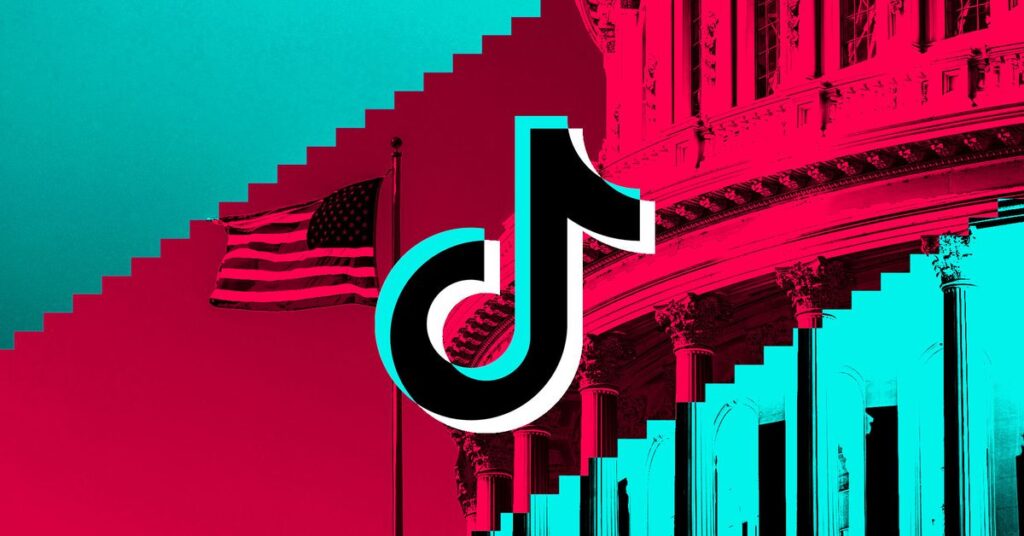TikTok says the government did not fully consider viable alternatives before pushing for a law that could ban the platform in the United States. China-based TikTok, whose parent company is ByteDance, claims it provided the U.S. government with a broad and detailed plan to mitigate national security risks, but that plan fell apart when Congress passed a law that would have huge implications for speech. Largely ignored.
In a brief filed Thursday in the D.C. Circuit Court of Appeals, TikTok and a group of creators on the platform who filed their own lawsuit laid out their reasons for arguing the new law violates the First Amendment. The court is scheduled to hear oral arguments in the case on September 16, just months before the current divestment or injunction deadline of January 19, 2025.
The Protecting Americans from Apps Controlled by Foreign Adversaries Act would effectively ban TikTok from operating in the United States unless TikTok is divested from ByteDance by a deadline. The president could choose to extend that deadline slightly if he sees progress toward a deal. But breaking up TikTok won’t be entirely straightforward, given limited potential buyers and Chinese export laws that could prevent sales of its coveted recommendation algorithm.
But lawmakers backing the legislation say the divestiture is necessary to protect national security — both because they worry the Chinese government could gain access to U.S. user information because of the company’s ownership in China, and because they worry ByteDance could be targeted Pressure from the Chinese government changes the algorithm for spreading propaganda in the United States. TikTok denies that this is happening or could happen in the future, saying its business is separate from ByteDance.
The broad outlines of TikTok’s arguments are laid out in the complaint. But the new documents provide a broader look at how TikTok has engaged with the U.S. government over the years and laid out a detailed plan for how it believes it can mitigate national security concerns while continuing to operate.
In an addendum, TikTok submitted hundreds of pages of communications with the U.S. government, including briefings the company provided to the Committee on Foreign Investment in the United States (CFIUS) as it assessed the national security risks posed by its ownership. One set explains the basics of how its algorithms determine what content to recommend users to watch next, as well as a detailed plan to reduce the risk of improper access to U.S. user data. It even includes a floor plan for a “dedicated transparency center” established in partnership with Oracle, where specific groups of employees in TikTok’s U.S. data operations can access source code in a secure computing environment. According to the slide, ByteDance employees are not allowed in the space.
TikTok called the law “unprecedented,” adding, “[n]Congress has never explicitly singled out and closed down specific speech forums. Never before has Congress silenced so much speech in one action.
Courts typically apply a standard known as strict scrutiny in such speech cases—the government must have a compelling interest in restricting speech, and the restrictions must be narrow enough to achieve their purpose.
TikTok claims Congress has “little to review” when it comes to reviewing “such extraordinary restrictions on speech.” The company said Congress failed to produce findings to justify its reasoning behind the law, leaving only statements from individual members of Congress. for court hearing. (Many of these statements are included in an addendum to TikTok’s submission.)
“Other companies operating in China,” TikTok wrote in its briefing. Lawmakers received confidential briefings before the vote, which some said influenced or solidified their final stance on the bill. But the information in those briefings remains inaccessible to the public, even as some lawmakers have pushed to have them declassified.
The company also said that CFIUS, which was initially tasked with evaluating its risk mitigation plan, had not provided a substantive explanation for why it took such a tough stance on the divestment in March 2023. Government officials met but received “no meaningful answers.” The Committee on Foreign Investment in the United States and the Justice Department did not immediately respond to requests for comment.
TikTok says it has implemented most of the program voluntarily through the $2 billion “Project Texas”
The text of the draft national security agreement TikTok submitted to CFIUS is included in an addendum filed with the court. The draft includes proposed changes, such as the creation of TikTok US Data Security Inc., a subsidiary that would be responsible for managing operations involving U.S. user data, as well as strict oversight by CFIUS constituent agencies. TikTok said it has implemented most of the program voluntarily through the $2 billion “Project Texas.” Still, recent reports have raised questions about how effective the program is for national security purposes. in a report wealth Starting in April, former TikTok employees said the plan was “largely cosmetic” and that employees were still in contact with China’s ByteDance executives.
Justice Department spokesman Terrence Clark said in an emailed statement this edge The agency and intelligence officials “constantly warn of the threat of authoritarian states that can weaponize technology, such as the apps and software that runs on our phones, against us. When these authoritarian states require companies under their control to secretly This threat becomes more complex when sensitive information is turned over to governments.
Regardless, the court will have to consider whether the U.S. government should consider taking a less restrictive path to speech to achieve its national security goals, which TikTok says it should. “In short, Congress reached for a sledgehammer without even considering whether a scalpel would be enough,” TikTok wrote in the brief. “It ordered the shutdown of one of America’s largest speech platforms and left petitioners and the public guessing. Why a range of less restrictive alternatives to speech are being ignored.

